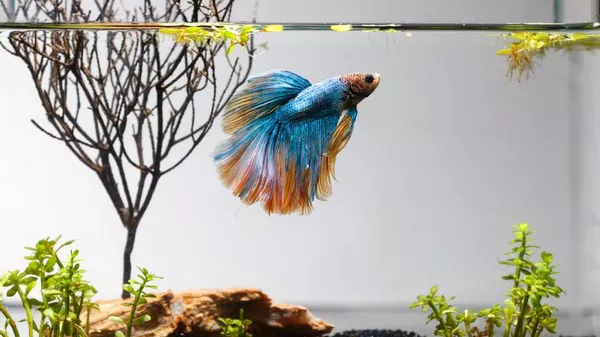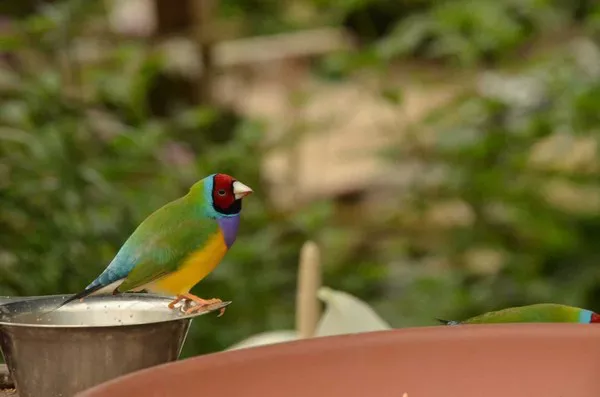Betta fish (Betta splendens) are one of the most popular pet fish due to their vibrant colors, flowing fins, and relatively easy care requirements. However, maintaining a clean and healthy environment for your betta is crucial for its well-being. One of the most important aspects of betta fish care is water maintenance, especially in smaller tanks such as a 3-gallon setup.
In this article, we will discuss how often you should change the water in a 3-gallon betta tank, the factors that influence water changes, and best practices for keeping your betta happy and healthy.
Why Water Changes Are Important
Water changes are essential for maintaining a betta’s health because they remove waste, excess nutrients, and harmful chemicals that accumulate over time. Even with a filter, small tanks can accumulate toxins quickly, making regular water changes necessary.
Here are the primary reasons why water changes are important:
- Remove Waste and Ammonia – Betta fish produce waste, which breaks down into harmful ammonia. High ammonia levels can cause stress, illness, and even death.
- Maintain Water Quality – Fresh water replenishes oxygen levels and keeps pH levels stable.
- Prevent Algae Growth – Excess nutrients in the water encourage algae growth, which can cloud the tank and create an unhealthy environment.
- Reduce Harmful Bacteria – Stagnant and dirty water can become a breeding ground for harmful bacteria and parasites.
How Often Should You Change Water in a 3-Gallon Betta Tank?
For a 3-gallon betta tank, the frequency of water changes depends on whether you have a filter installed:
With a Filter
- Change 25-50% of the water every week.
- A filter helps remove some waste and toxins, making full water changes less necessary.
- Regular partial water changes keep the water stable and beneficial bacteria intact.
Without a Filter
- Change 50-100% of the water every 2-3 days.
- Without a filter, toxins accumulate quickly, requiring more frequent changes to keep the water clean.
- A full water change should be done carefully to avoid shocking your betta.
Factors That Influence Water Change Frequency
1. Tank Size
Smaller tanks accumulate waste and toxins faster than larger ones. A 3-gallon tank is still small, so frequent water changes are necessary to maintain water quality.
2. Filtration System
A filter helps break down waste and reduce ammonia buildup. If your tank has a good filter, you may be able to perform smaller, less frequent water changes.
3. Tank Mates and Plants
- If your betta is alone, waste production will be lower.
- If you have live plants, they help absorb some waste and nitrates, slightly reducing the need for water changes.
- If you have snails or shrimp, they add to the bioload, meaning you may need more frequent water changes.
4. Food and Waste Levels
Overfeeding leads to uneaten food, which decomposes and pollutes the water. Feeding only the right amount reduces waste and helps maintain cleaner water.
5. Water Testing
Using a water test kit to check for ammonia, nitrites, and nitrates can help you determine when a water change is needed. Ideally, ammonia and nitrites should be at 0 ppm, and nitrates should be below 20 ppm.
Step-by-Step Guide to Changing Water in a 3-Gallon Betta Tank
Materials Needed
- A clean container or bucket
- Water conditioner (to remove chlorine and chloramine)
- A siphon or turkey baster (for small water changes)
- A net (optional, if moving your betta)
Partial Water Change (25-50%)
- Turn off the filter and heater.
- Use a siphon or cup to remove 25-50% of the water.
- Refill with dechlorinated, temperature-matched water.
- Turn the heater and filter back on.
- Observe your betta for signs of stress.
Full Water Change (Only if Necessary)
- Prepare a separate container with dechlorinated, temperature-matched water.
- Gently scoop your betta into a cup or holding container.
- Empty the tank and clean any decorations with warm water (no soap).
- Refill the tank with fresh water and reintroduce your betta carefully.
Signs That Your Betta Tank Needs a Water Change
Even if you follow a regular schedule, you should be aware of signs that indicate poor water quality:
- Cloudy or smelly water – Indicates waste buildup or bacterial bloom.
- Algae growth – Excess nutrients in the water can cause algae to thrive.
- Betta acting sluggish or gasping at the surface – Possible ammonia or oxygen imbalance.
- Fin rot or discoloration – Signs of poor water quality affecting your betta’s health.
Additional Tips for Betta Tank Maintenance
- Use live plants like anubias, java fern, or hornwort to naturally improve water quality.
- Avoid overfeeding – Give your betta only as much as it can eat in 2 minutes.
- Keep a water testing kit to monitor ammonia, nitrites, and nitrates.
- Make gradual changes to avoid shocking your betta with sudden shifts in water conditions.
Final Thoughts
For a 3-gallon betta tank, regular water changes are essential to keep your fish healthy. If you have a filter, aim for 25-50% water changes weekly. If you don’t have a filter, perform 50-100% water changes every 2-3 days. Paying attention to water quality, waste buildup, and your betta’s behavior will help you determine when additional cleaning is needed.
By following these guidelines, you’ll create a clean, stable environment where your betta can thrive!
Related Topics:




















